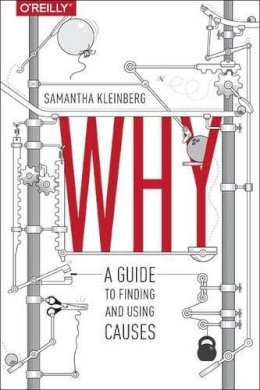
Stock image for illustration purposes only - book cover, edition or condition may vary.
Description for Why
Paperback. Can drinking coffee help people live longer? What makes a stock's price go up? Why did you get the flu? You contend with questions like these on a regular basis, but it's unlikely you ever took a course on how to find causes or examined the process you use to make these judgments. Num Pages: 254 pages. BIC Classification: HPX. Category: (P) Professional & Vocational. Dimension: 250 x 150 x 15. Weight in Grams: 666.
Can drinking coffee help people live longer? What makes a stock's price go up? Why did you get the flu? Causal questions like these arise on a regular basis, but most people likely have not thought deeply about how to answer them. This book helps you think about causality in a structured way: What is a cause, what are causes good for, and what is compelling evidence of causality? Author Samantha Kleinberg shows you how to develop a set of tools for thinking more critically about causes. You'll learn how to question claims, identify causes, make decisions based on causal information, and verify causes through further tests. Whether it's figuring out what data you need, or understanding that the way you collect and prepare data affects the conclusions you can draw from it, Why will help you sharpen your causal inference skills.
Product Details
Publisher
O´Reilly Media United States
Number of pages
254
Format
Paperback
Publication date
2015
Condition
New
Weight
424g
Number of Pages
284
Place of Publication
Sebastopol, United States
ISBN
9781491949641
SKU
V9781491949641
Shipping Time
Usually ships in 7 to 11 working days
Ref
99-1
About Samantha Kleinberg
Samantha Kleinberg is an Assistant Professor of Computer Science at Stevens Institute of Technology, where she works on developing methods for understanding how systems work when they can only be observed - and not experimented on. Currently, these methods are being used to understand causes of secondary complications in stroke patients (funded by an NIH/NLM R01 grant) and to predict changes in glucose in people with diabetes. She introduced courses on causal inference and health informatics at Stevens, and enjoys helping students cope with the challenges of real-world data. She received her PhD in computer science and B.A. in computer science and physics all from New York University, and previously held an NSF/CRA Computing Innovation Fellowship at Columbia University.
Reviews for Why
